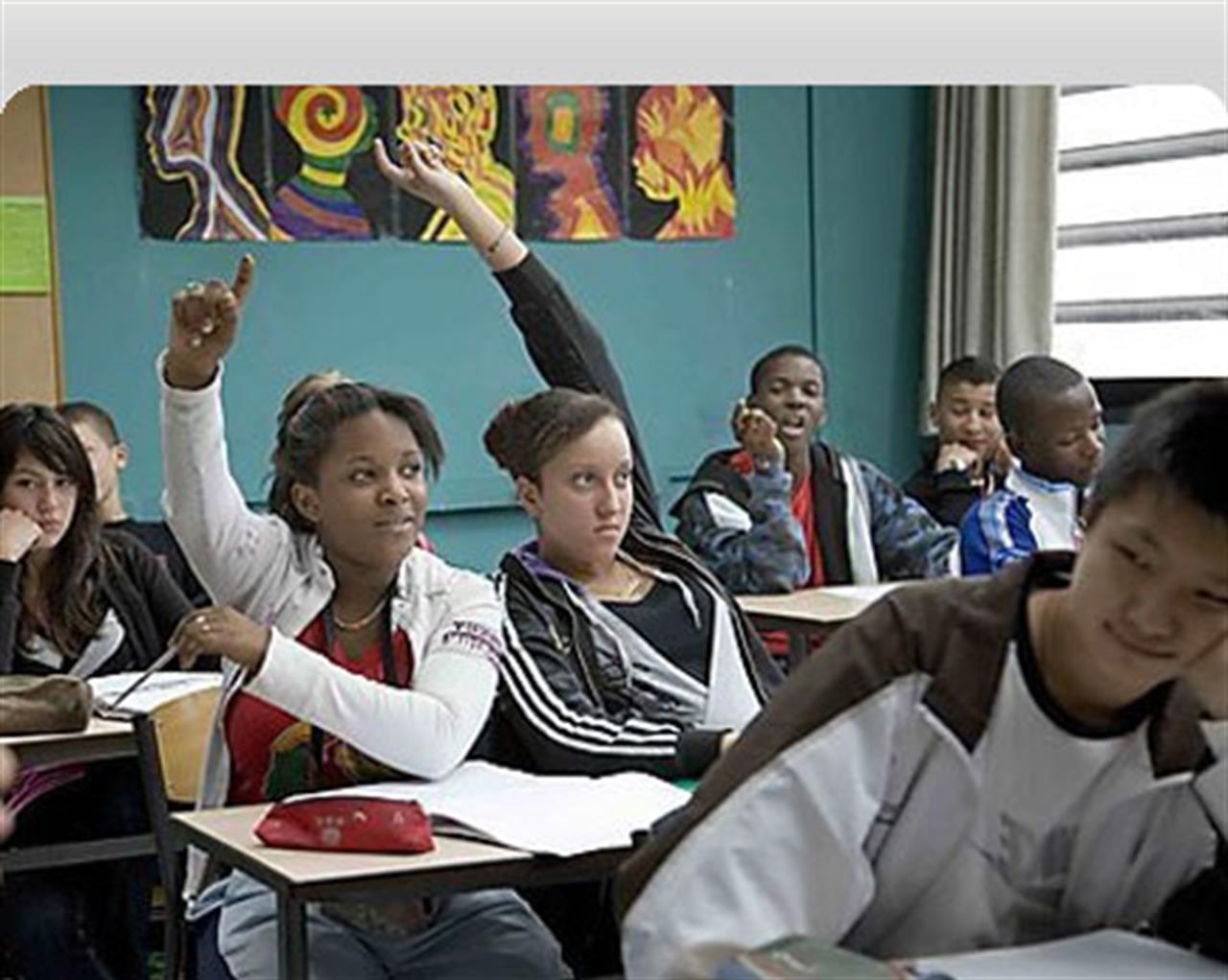Non profit
France: Belleville, the face of social change
A film tells the story of France's social discontent and paints a picture very different to the one that existed 20 years ago...

Insults, cell phones ringing and students shouting in class. Teachers are at the mercy of their pupils, who happily ignore the words and desperate gestures that they try to defend themselves with. No one in France would have thought that such a cruel destiny awaited the glorious republican school. François Bégaudeau is the author of a travel diary, Entre les murs, inspired by his experience as a French teacher. Following a huge success in the bookshops, Entre le murs has become a film directed by Laurent Cantet and recent winner of the Golden Palm in Cannes.
In the film Cantet deals with the contradictions inherent to the French school system. From its desire to not exclude the weak but to still enforce strict discipline to its recognition of diversity regardless of its mono-culture curriculum. Entre les murs compares two worlds. On the one hand there is a teacher (Bégaudeau, who acts himself) in his 30s, his ideals are left wing and he is, probably, scarred by the disastrous results of the civil battles that characterised France in the eighties. On the other hand there is the world of 25 students, aged 13 and 14, most of them second or even third generation immigrants and full of resentment against the racial discriminations that threaten the French nation. They are also know full well that the words “Liberté, égalité, fraternité” (Freedom, equality, fraternity) engraved above the front door of Jean-Jaurès secondary school in Belleville, Paris, do not apply equally to every one.
Once upon a time in Belleville…
My skin is white. Unlike the protagonists in the film my being white never caused hostility among my school mates. Not during the 16 years that I lived in the poor area known as Belleville, anyway. I grew up in the classrooms of the Voltaire secondary school, playing with boys and girls of African, Arab-Muslim, European and Asian origin. Before being black, white, Jewish or Arab, we were Joseph, Ahmed, Claire, Pierre, Kostia, Felipe, Ivan and Boubacar. Sure enough, there were many social inequalities within our group, but the fact that our African and North African playmates were poor was never really a source of tension. It was the beginning of the eighties and Bellville’s white working class, that then represented the majority of the population, was not affected by the economic crisis. All in all families had nothing to worry about. Mitterand guaranteed social cohesion and Le Pen did not scare anyone – not in Paris and not in the outskirts either.
The demonstrations launched in 1983 by Sos Racisme (SOS Racisme is a French anti-racist NGO whose main goal is to fight racial discrimination) were the first warning that racism was beginning to take hold of France’s minority groups. At the time, gangs of young people were the main culprits of urban violence. North African teenagers, kicked out of school, fell into trafficking outside Paris’ secondary schools. Their loot was limited to little money: Nike sneakers, Louis Vitton scarves, Swatch watches and Adidas sports jackets. These are the only fears I remember.
Zizou and Tigana
I think that what saved us was the fact that History didn’t have a hold on our world. Take football, for example. The young people in Cantet’s film try to provoke their teacher by saying that Zidane, a French football star of Algerian origin who was brought up in the outskirts of Marseilles, is not a French icon but a North African one. The teacher argues that Zizou (as he is known in France) is a national treasure, but his remark is met by laughter in the classroom. The confrontation places Bégaudeau in a difficult situation: he is helpless before History’s merciless logic.
Young French people of Arab origin see Zizou as the North African revenge against French colonial power and against the social exclusion policies that today’s second generation immigrants are victims of. The attempt by part of the media and the government to make the triumph of the French national football team during the 1998 World Cup into a symbol of the success of social inclusion was destined to fail. I am thinking of the national football team in 1982, the era of undisputed stars like Platini, Tigana, Giresse or Marius Trésor. It made no difference whether they were black or white. For me and my schoolmates they were French, just French. We were used to worshipping non-EU football players like Mustapha Dalheb (who played for Paris-Saint-Germain). Social inequalities didn’t matter when it came to football. Not today. Somewhere in between the fall of the Berlin wall and the fall of the Twin Towers identity has become the ideological crux.
Translation by: Cristina Barbetta
Vuoi accedere all'archivio di VITA?
Con un abbonamento annuale potrai sfogliare più di 50 numeri del nostro magazine, da gennaio 2020 ad oggi: ogni numero una storia sempre attuale. Oltre a tutti i contenuti extra come le newsletter tematiche, i podcast, le infografiche e gli approfondimenti.
